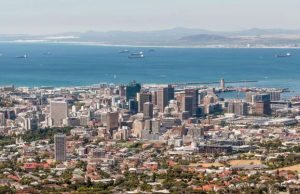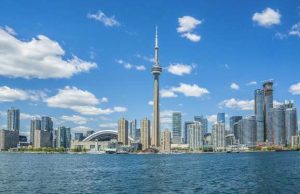In obvious prior awareness of this particular report, Acting President Yemi Osinbajo declared earlier this week that Nigeria could be among the 15 largest economies in the world within 10 years. Coming after weeks and months of grim scoring for Nigeria in global ranking on several items, the Vice-President could not be blamed for echoing the most current Pricewater Coopers report now circulating and which has ranked Nigeria among thirty three countries that would shake the world 33 years from now. Only three African countries are on the list – South Africa, Egypt and Nigeria but Nigeria is the first of them on the 14th position. It is followed by Egypt on the 15th while South Africa is 27th.
 The 33 countries are as follows in descending order: China, India, United States, Indonesia, Brazil, Russia, Mexico, Japan, Germany, United Kingdom, Turkey, France, Saudi Arabia and Nigeria. Others are Egypt, Pakistan, Iran, South Korea, Philippines, Vietnam, Italy, Canada, Bangladesh, Malaysia, Thailand, Spain, South Africa, Australia, Argentina, Poland, Colombia and Netherlands.
The 33 countries are as follows in descending order: China, India, United States, Indonesia, Brazil, Russia, Mexico, Japan, Germany, United Kingdom, Turkey, France, Saudi Arabia and Nigeria. Others are Egypt, Pakistan, Iran, South Korea, Philippines, Vietnam, Italy, Canada, Bangladesh, Malaysia, Thailand, Spain, South Africa, Australia, Argentina, Poland, Colombia and Netherlands.
There are two shockers about the ranking. The first one is none of the three highest movers is in the Western world. These are Vietnam, Philippines and Nigeria in descending order. The second shocker is Indonesia coming before Brazil.

South Africa

Canada
The global system is filled with all manner of ranking institutions today but Pricewater is generally rated as the second largest accountancy and consulting firm in the world. It does the ranking in terms of its business interests but its ranking sends a strong message about the potentials locked in a country such as Nigeria. Globally and domestically, there is no debate about that. The debate is with the business model that would enable Nigeria make the leap. And the elite consensus that will push that model ruthlessly with the big picture of global economic power status in view. Can that elite consensus be achieved under an atmosphere of diversionary ethno-religious and regional squabbles as presently exists?
For business reasons, Pricewater’s data for the ranking does not come with the report but it indicated three conditionalities by which Nigeria can make the leap. These are diversification of the economy, infrastructure provisioning and ruthless assault on corruption. Informed sources hinted Intervention that Nigeria and some of the countries that made it to the list did so on the strength of the advantage factors of growing population. The two problems with that is whether Nigeria has the health facilities that can sustain her population advantage and if it can leverage on the population advantage to create a larger market. It is claimed in some circles that, between 1982 and today, Nigeria’s population grew by over 60 million. If that is correct, it means Nigeria grew in those years as much as Britain.




























